Enlazo con destacados una entrevista a Chaykin que se publicó hace un par de semanas (vía):
“The book was conceived in late ’15. I live in a small California town, more conservative socially and politically than would be assumed about the west coast. I spent a great deal of time in the American Midwest, going to comics shows. And it just seemed that the country I grew up in had ceased to exist. There was a divide along racial lines, generational lines, ethnic lines with no capacity for compromise under any circumstances".
“The irony is that the only criticism I’ve received from the right is the only criticism that’s come from those who have actually read the book,” he pointed out. “On the other hand, the obsessive hatred directed at me; the cynical attempt to promote one’s own product by attacking me–this comes from my side of the aisle".
“It inflamed people who hadn’t read the book, slamming it on the basis of assumptions drawn from the image. From the start of this, I’ve been accused of Islamophobia, homophobia, transphobia, racism, and my favourite, anti-Semitism [inciso: Chaykin es judío]. I’ve covered all the major food groups. I’ve spent much of my professional life having representations mistaken for the act. Back in 1994, I did a book called Power & Glory in which I had the president of the United States tell a genuinely offensive joke, in order to convey how loathsome this guy was. I was taken to task for telling the joke. It didn’t matter that it was the character telling the joke, because it was the audience that was repelled by the character telling the joke. But this was ignored in the name of virtue indication–a concept that had no name back then, so I’m grateful to have lived long enough for it to be designated".
“I come from a longstanding left wing/liberal tradition, so I wanted to do a book that talked about the divisiveness of the culture. I actively chose not to do a book that referred to contemporary figures or that dealt with contemporary issues, because, as I said in the essay in the first issue, I assumed that Hillary was going to win, and there would be some violence from Trump supporters. I was the first voter in my polling place. I was having lunch with my wife that day and there was an eerie quiet in the street. I sat and watched the election results that night, changing channels in the hope of getting a different result. I was shocked by the election results but not surprised. It seemed to be a natural fault of this country. You sow the wind and you reap the whirlwind and that’s what’s going on. And let’s not forget the fact that there are 41% of the American people who still think he’s doing a great job".




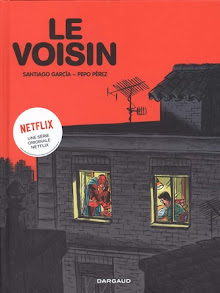

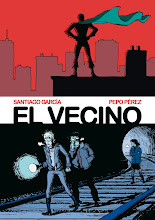

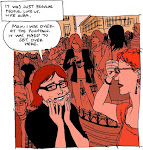
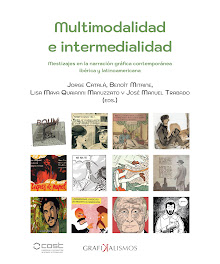








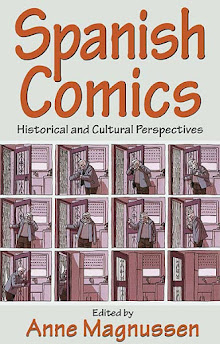

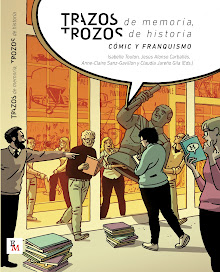





1 comentario:
Me alegro que el blog haya salido del intermitente hiato y vuelvan estos jugosos análisis. Muy triste el tema Chaykin, a estas alturas, sobre todo por la patética capacidad de decisión que demuestran tener los editores con su reacción, y el mensaje que lanzan sobre la debilidad de la industria(infantilizada again), al ceder ante grupos de presión y autocensurarse, cuando lo que deberían hacer es posicionarse al lado de los autores y no ceder terreno ante las amenazas, no dando la sensación de que están ahí solo para satisfacer clientes a cambio de unos putos dólares o que se han bebido su propio criterio. El neopuritanismo parece querer demostrar como hay mucha gente ahí fuera que prefiere repetir consignas grupales borregiles a cambio del beneficio de la pertenencia a un colectivo antes que ejercitar la capacidad de reflexión y autocrítica o como substituta acomodaticia de esta.
Muy buenos artículos, un saludo.
Publicar un comentario